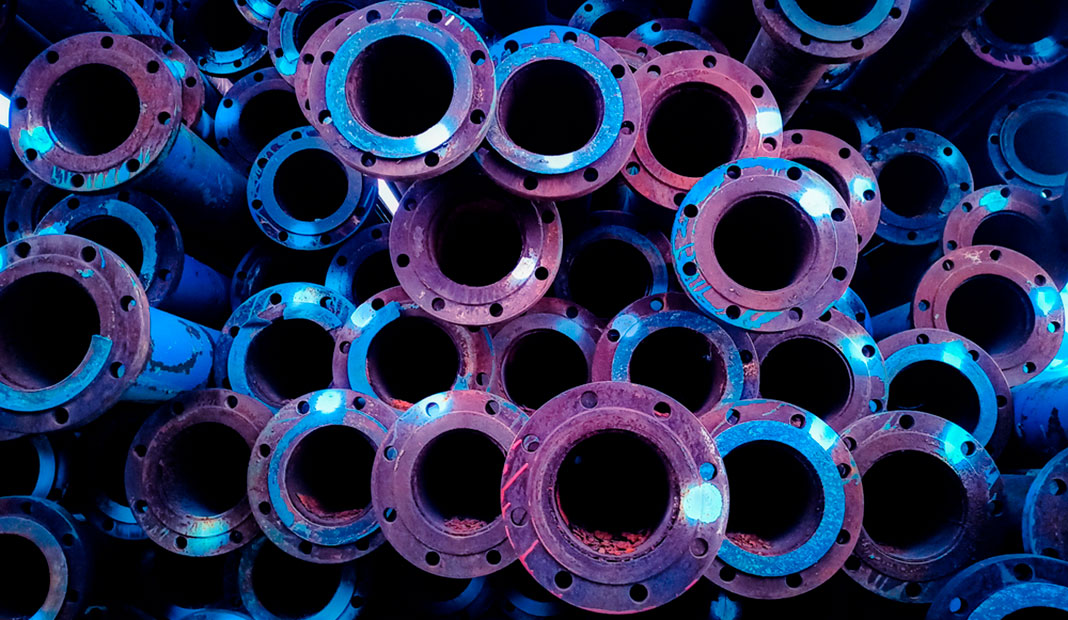High temperatures can make falling asleep a challenge, especially during the heat waves that we are experiencing this summer, and for this reason many resort to fans -standing or ceiling-, air conditioning, or any device that provides some fresh air. Although they have the advantage of helping you sleep better, you should know that you have to be careful with them, as sleeping with the fan or air on also carries risks. We tell you what they are.
Having the window open at night has always been the way to keep the room cool at night, however, when it is hot or there is a lot of noise outside, it may not be a good option. Hence, alternatives have been sought such as electrical devices that move the air or expel cold.
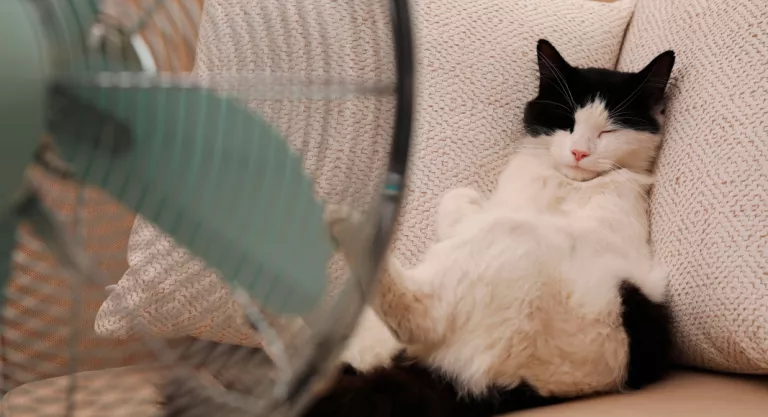
These devices are plugged into electricity, so their use will result in higher costs and it is important to use them in moderation, out of responsibility for the environment and energy consumption. In terms of price, fans cost less than air conditioners, which require more laborious installation. Prices are around 30 euros for standing fans, from 70 euros for ceiling fans and from 250 euros for air conditioners.
Fans and air conditioners increase dryness in the environment, reducing mucus and increasing the risk of infections
Choosing one or the other will depend on the budget you have, the place where you want to install it, or your preferences. The advantage of standing fans is that they can be moved from one place to another, so in addition to using it while you sleep, you can also use it to cook or watch television, for example.
Risks of sleeping with a fan or air conditioner
Dr. Miriam Calle, head of the Pneumology Service at the Hospital Clínico San Carlos in Madrid, has explained to us the main problems that can be caused by using room air conditioners or air conditioners and fans, which are:
-

increased dryness
Air conditioning systems blow cold air into the room they are in, reducing the temperature inside. This causes “greater dryness of the respiratory tract, mainly the nose, throat and upper respiratory tract.” In addition, it also dries out the environment, so the eyes and skin can suffer.
-

Increased risk of rhinitis and respiratory infections
This dryness, as the expert explains, makes the mucosa less moist, whose main function is to protect against the entry of microorganisms. “When our upper respiratory tract, nostrils and throat lose this mucus, in addition to discomfort such as itchy throat or nasal dryness, we also have a greater risk of being attacked by germs, viruses and microorganisms, which can access more easily and, therefore, therefore develop infections. Therefore, it increases the risk of rhinitis or cold, and legionella, a lung infection caused by the bacteria Legionella pneumophila, which can be found in air conditioners.
-

less hydration
Dr. Calle warns us of something very important and of which little is said, and that is that, when the air conditioning is turned on and the room we are in is climatized, the sensation of freshness makes us not want to drink so much water as if we were at real street temperature. For this reason, we must be especially attentive to hydration and drink enough, since, if this is not done, the dryness of the mucous membranes will worsen and we will run the risk of suffering from dehydration.
-
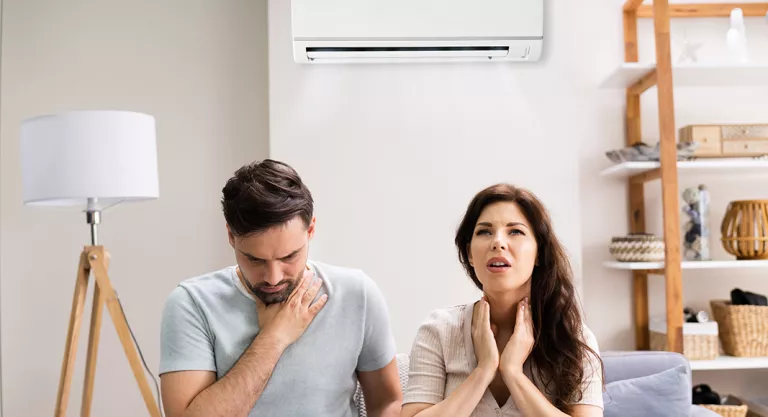
Muscle pains
Having a low temperature in the room, or a fan too close to the body, can cause the muscles to tense as a consequence and as a way to protect themselves, and this fact can lead to annoying muscle contractures.
-

environmental damage
As we have already mentioned, the use of air conditioning and, to a lesser extent, that of the fan, wastes energy and contributes to climate change. As explained by the United Nations Organization (UN): “Refrigeration contributes significantly to climate change due to emissions of hydrofluorocarbons, carbon dioxide and black carbon from energy generated from fossil fuels that power air conditioners and other home appliances”.
-

worse sleep due to noise
If your fan or air make noise, it could interfere with proper rest. This depends a lot on the person, because there are those who do not hear anything when they sleep and others are woken up by a fly. There are also those who advocate that the sound of the fans calms them down and helps them fall asleep, since they consider it as white noise.
-
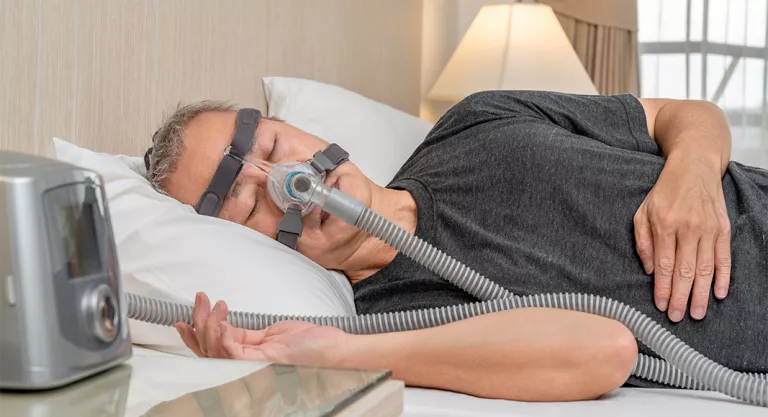
Caution with vulnerable people
The expert also explains that children, the elderly and groups with pathology, such as chronic obstructive pulmonary disease (COPD), kidney disease, heart disease… may be more vulnerable. For example, people with allergies, asthma, or other respiratory problems should be especially careful with air conditioners, as they can take their toll. Fans can pick up dust from furniture, thus increasing the risk for those with allergies.
-
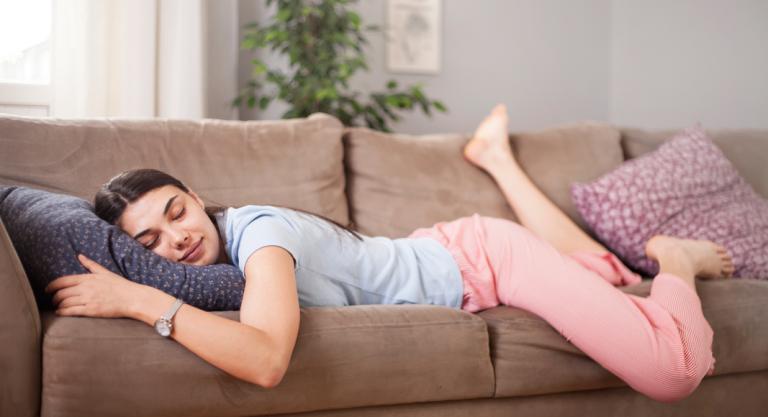
Tips for sleeping with air conditioning or fans
If you have no choice but to opt for one of these refrigerating devices, you can take into account some things to avoid health problems derived from their use. Among the advice that Dr. Miriam Calle gives us are:
Fan or air conditioner: which is better for sleeping?
The pulmonology expert explains that “the fan really moves the air, so there is no risk of filters or infections, and in that case fans would be more advisable. It should be noted that they do not air-condition the environment, which is what has been associated with the most health problems.”
Now that you have reached the end, and you have all the necessary information, you only have to decide which device to use or if, on the contrary, you opt for the traditional method of opening windows. Whatever it is, happy and fresh rest!
.

